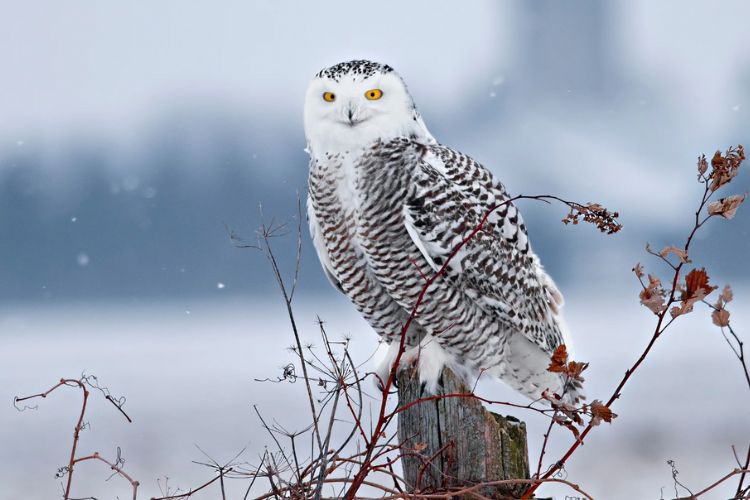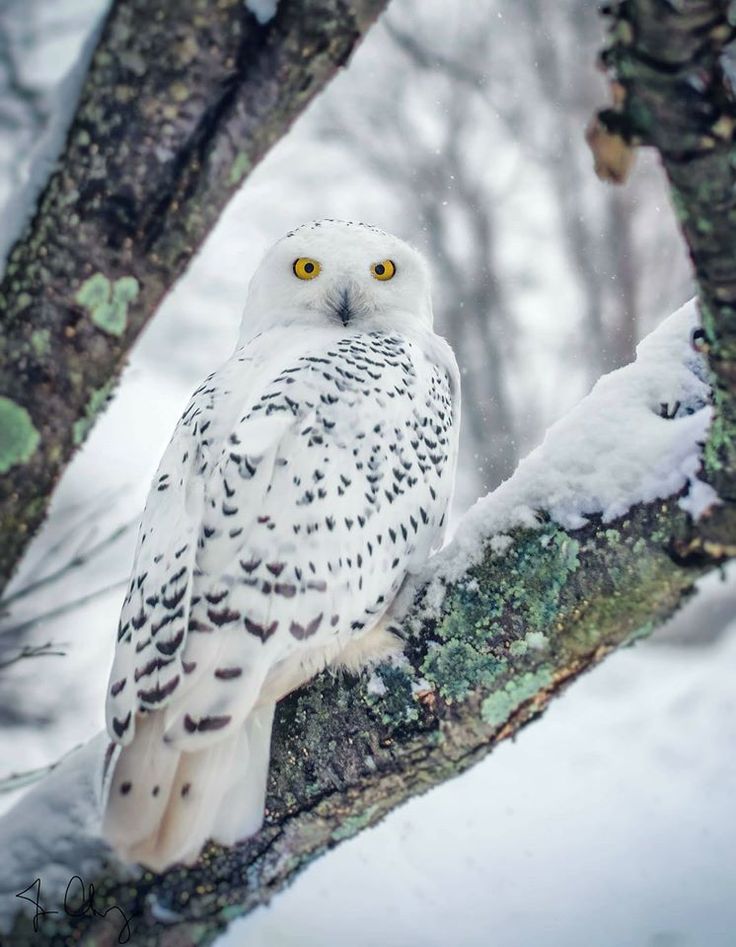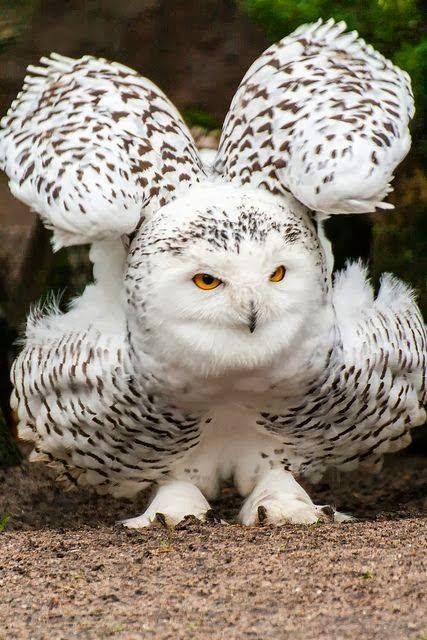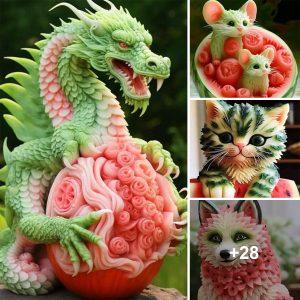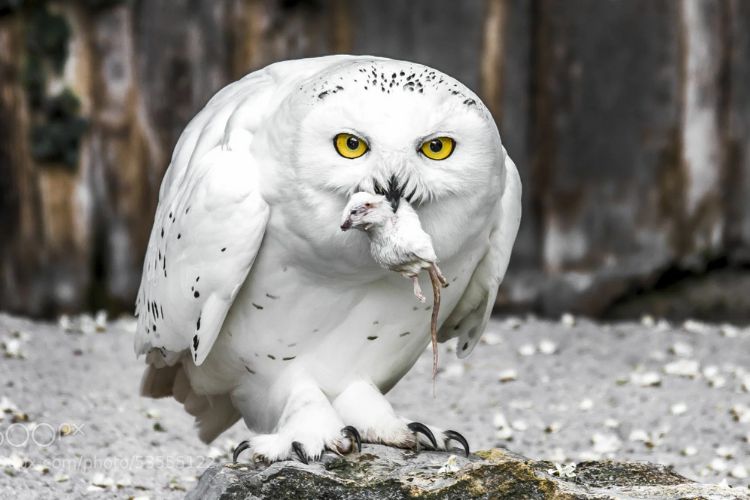
The Snowy Owl, with its striking white plumage and piercing yellow eyes, stands as a symbol of winter’s enchanting beauty. Found in the Arctic regions of North America and Eurasia, this majestic bird of prey embodies the essence of the icy landscapes it calls home. The Snowy Owl’s appearance is perfectly adapted to its frigid habitat, with thick, insulating feathers that keep it warm in the harsh winter conditions. Its large, round head and keen eyesight make it a formidable hunter, able to spot prey from great distances across the snowy tundra.
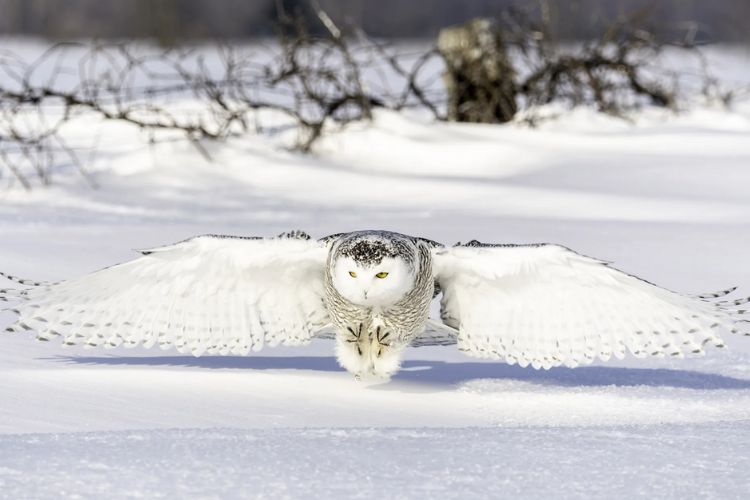
In addition to its physical adaptations, the Snowy Owl’s behavior also reflects the rhythms of the winter season. These solitary birds are known for their silent flight and patient hunting techniques, patiently waiting for the opportune moment to swoop down and capture their prey. Despite their solitary nature, Snowy Owls are also capable of forming strong bonds with their mates during the breeding season, with pairs often remaining together for life.
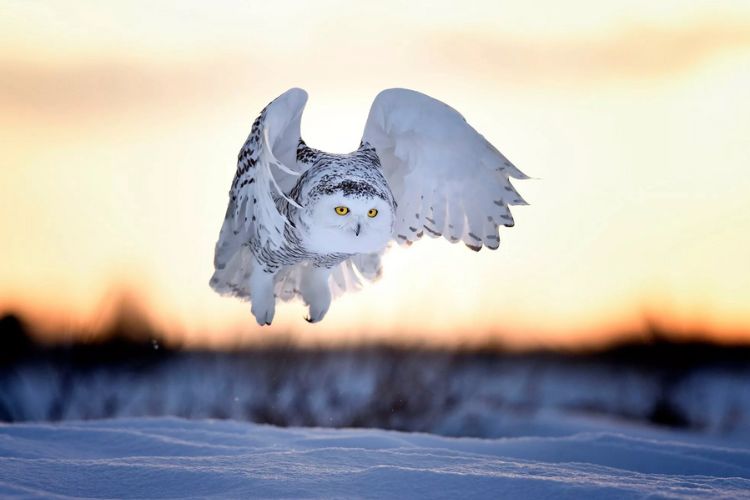
The Snowy Owl’s presence in literature, folklore, and popular culture further enhances its status as a symbol of winter’s enchantment. In various Indigenous cultures, the Snowy Owl is revered as a messenger of wisdom and a guardian of the spirit world. Its ghostly appearance and mysterious demeanor have inspired countless myths and legends, with stories of magical encounters with these majestic birds captivating imaginations for generations.
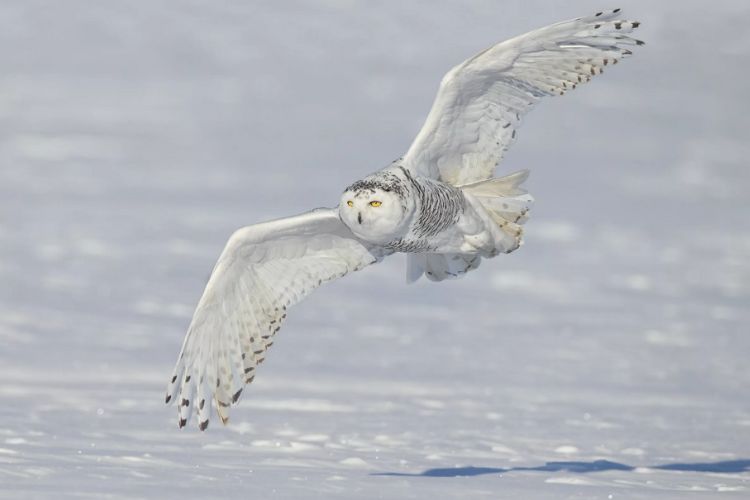
From the pages of fairy tales to the screens of nature documentaries, the Snowy Owl continues to captivate and inspire with its beauty and grace. As a symbol of winter’s enchanting beauty, it serves as a reminder of the resilience and adaptability of life in the harshest of environments. Whether glimpsed in the wilds of the Arctic or admired in photographs and artwork, the majestic Snowy Owl evokes a sense of wonder and awe that transcends the boundaries of geography and time.
